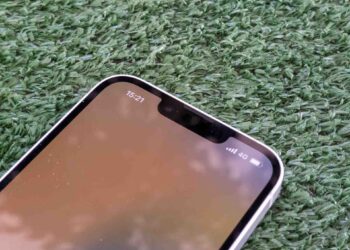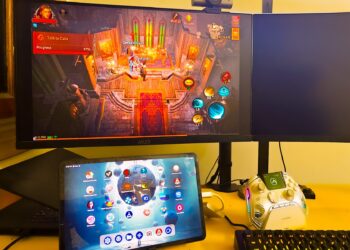Google initiated the trend for smart glasses more than ten years ago, but the concept struggled to catch on. Some argue that it was simply ahead of its time, while others were wary of potential privacy issues. However, it appears that a significant resurgence may be on the way.
As reported by Bloomberg, Google is nearing an agreement to purchase AdHawk Microsystems, a firm specializing in comprehensive eye-tracking technologies that are already available in wearable devices.
According to sources familiar with the transaction, the technology giant plans to acquire the Canadian startup for $115 million. Interestingly, Meta, which is already heavily invested in the smart glasses market with products like Aria, Orion, and Meta Ray-Ban, had expressed interest in acquiring AdHawk in 2022.
Why AdHawk is a strong candidate?
AdHawk has backing from notable investors, including Essilor Luxottica, the parent company of Ray-Ban, which has collaborated with Meta to create AI glasses equipped with cameras. Other investors include HP, Samsung, and Intel.
More than just financial support, the technology they bring is significant. In 2024, Mindhawk unveiled the MindLink Air smart glasses, featuring advanced eye-tracking technology.
It’s day two of #ETRA2024 and we’re showcasing our eye tracking technology in action!
From now until June 7, you can stop by our table for a live demonstration of our all-day, camera-free eye trackers.
Watch as they follow your gaze across the room and across the page! pic.twitter.com/O1QTYXiXMk
— AdHawk Microsystems (@AdhawkMicro) June 5, 2024
“We utilize a beam of light that scans your eye thousands of times per second, capturing reflections to build a detailed model of various aspects of your eyes,” explained AdHawk CEO Neil Sarkar in an interview with CTV News.
Eye-tracking technology is crucial for extended reality (XR) equipment, especially those featuring immersive augmented reality uses. For instance, Apple has integrated a sophisticated eye-tracking system into its Vision Pro headset, while Meta’s Orion holographic glasses also depend on advanced eye-tracking capabilities.
Google's ambitions are clear

Over recent years, Google has provided intriguing insights into how it envisions the integration of AI into everyday life, with one of its more ambitious projects centered around the smart glasses concept.
Last year, Magic Leap partnered with Google to deploy the latter's Gemini AI, Project Astra, and the Android XR app ecosystem in a set of augmented reality smart glasses.
Furthermore, Google acquired North Focals back in 2020, signaling that it was not finished exploring the smart glasses market. During the I/O 2024 annual developers' conference, Google showcased its most advanced vision for smart glasses with Project Astra.
Towards the end of 2024, Google also revealed Android XR, its most comprehensive attempt yet at building a robust XR software ecosystem based on Android. “It demonstrates renewed dedication from the company to establish an operating system capable of powering headsets, glasses, and other forms of wearable tech,” noted Digital Trends’ Jason Howell after experiencing the demo.
The market is also poised for Google's entry. Companies like Solos, RayNeo, and TCL have launched a variety of smart glasses over the last few years, while new entrants such as Halliday and Even Realities are offering remarkably impressive wearable technology.
It’s apparent that Google missed its early opportunity, and while its official entry into the smart glasses space remains uncertain and perhaps delayed, the targets outlined in the Bloomberg article indicate that smart glasses are firmly on the company’s product roadmap.






